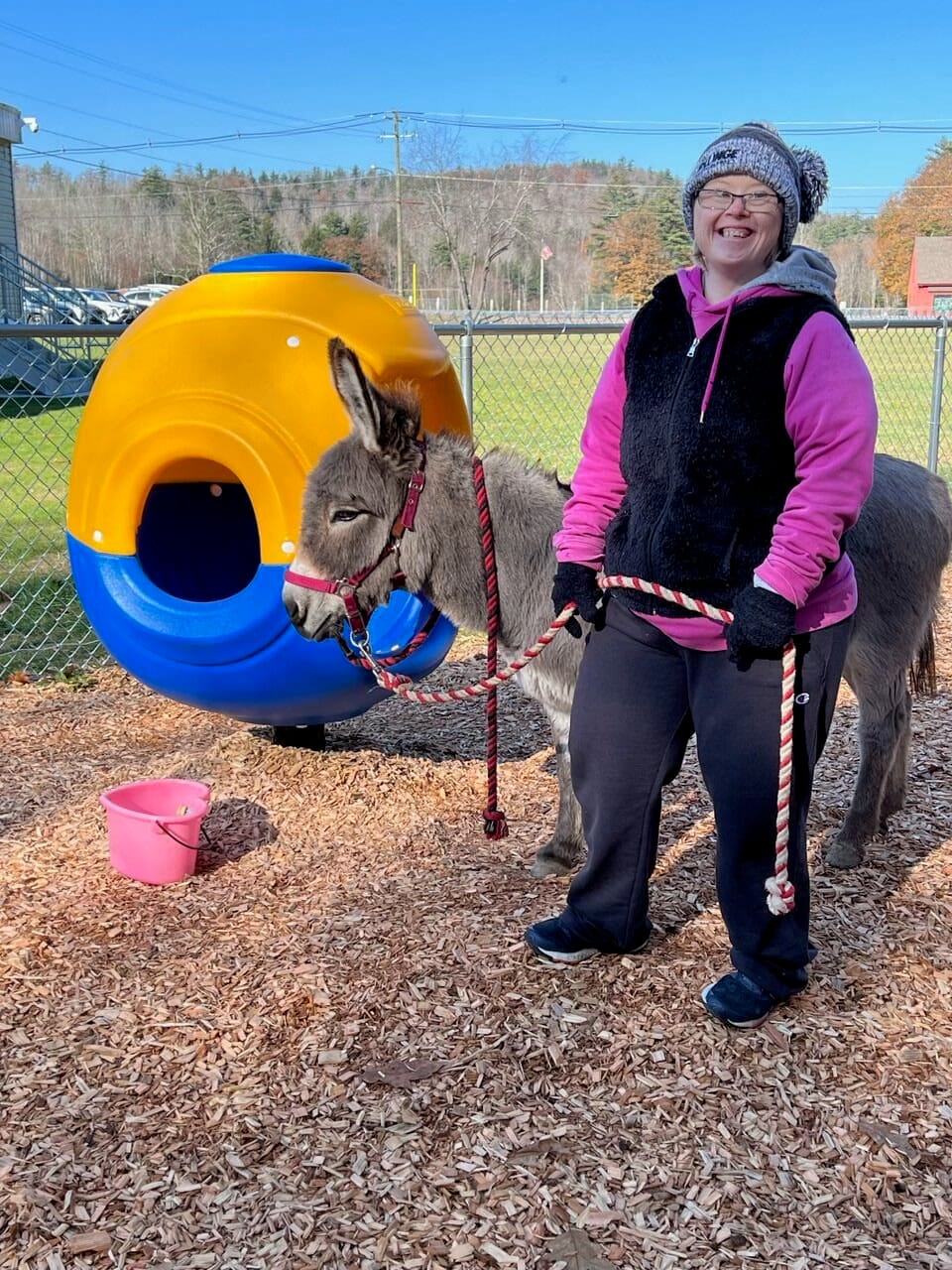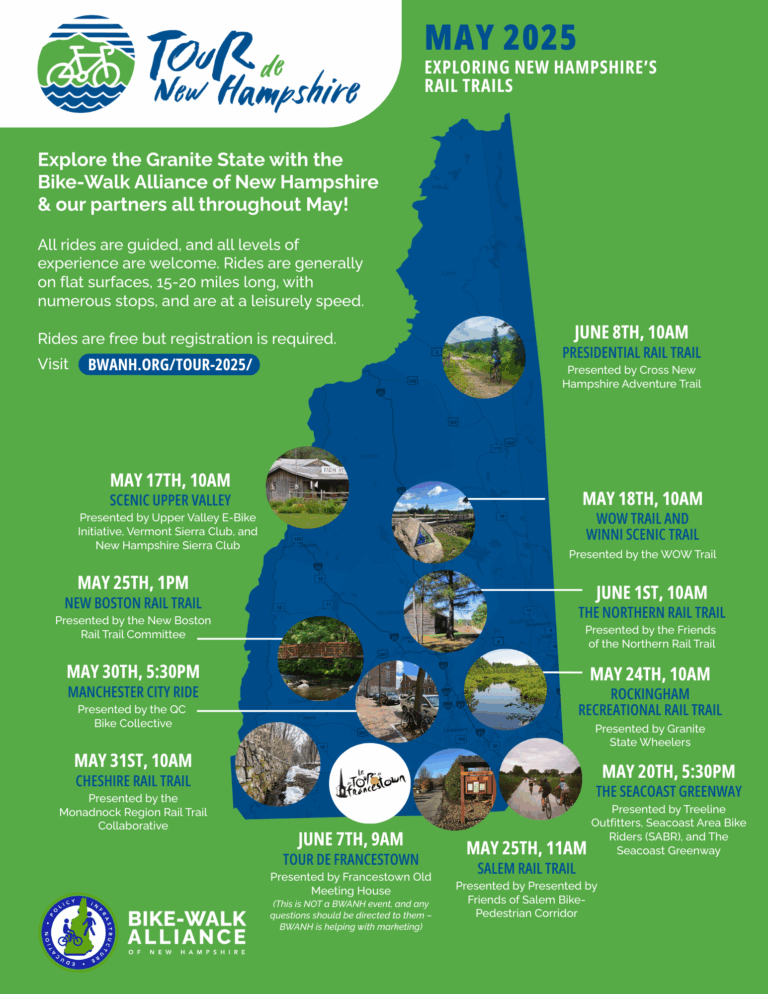For people with disabilities, finding employment can be fraught with frustration
Finding employment can be difficult for people with disabilities. Nationally, the unemployment rate for that demographic is about twice what it is for the general population, according to a 2022 report from the Bureau of Labor Statistics.



At Aurora Bakery in Newport, Michelle Ash was the queen of frostings.
“I didn’t even need a recipe,” said the 38-year-old Newport resident, who has Down syndrome.
For the past three years, Ash spent at least two days a week working at the bakery, making frosting, but also cleaning, serving sandwiches, and running the cash register with an adaptive system that used pictures, rather than words, to select the items customers purchased.
The bakery – which provided employment and vocational training for people with disabilities – gave Ash not only a paycheck but a social opportunity. So, when it closed at the end of October because of budget concerns, Ash was upset.
“I miss it,” she said during a December visit to the bakery space. “I miss all of them.”
Finding employment can be difficult for people with disabilities. Nationally, the unemployment rate for that demographic is about twice what it is for the general population, according to a 2022 report from the Bureau of Labor Statistics.
In New Hampshire, just over 25 percent of people who receive services from the Bureau of Developmental Services, which provides support for people with developmental disabilities, were employed in the fourth quarter of fiscal year 2022, according to a report from that organization. Nationwide, about 21 percent of people with a disability were employed in 2022 according to the U.S. Bureau of Labor Statistics.
In all, 1,134 New Hampshire residents with developmental disabilities were in jobs providing a traditional paycheck, according to the report. They worked an average of 13 hours a week and earned an average wage of $10.61 an hour.
Getting real-world work experience in a customer-service business is even more rare, said Margaret Coulter, director of Road to Independence, a nonprofit that administered the Aurora Bakery program, which began in 2017.
“We were really the only place in New Hampshire that was doing what we were doing and not as a sheltered environment,” Coulter said. “We were a business that had real-life experiences,” from interacting with customers to receiving unexpected deliveries in the middle of the workday.
“That’s a very empowering experience,” she said.
Support for people with disabilities, and education for the community
Employment can increase social connections and increase a sense of purpose and self-worth for people with disabilities, research shows.
“Ideally, for people with disabilities – for everyone, really – employment is more than a means to make income,” said Benjamin Adams, director of Workforce Development and Youth Transitional Services at Easterseals New Hampshire. “A job can be more than just a paycheck.”
Supportive work environments, like that offered by Aurora Bakery, make people feel more comfortable taking a job, said Coulter. The bakery used color-coded recipes, broken down to their simplest form for people who had trouble reading. People with disabilities from local school districts—including Newport, Kearsarge and Sunapee—could come into the bakery as volunteers, working and learning unpaid under the supervision of paid employees, many of whom also had disabilities. Pathways, a nonprofit serving people with disabilities in Sullivan and Grafton counties, also brought volunteers to the bakery.
Since 2017, the bakery trained about 75 people with disabilities, Coulter said. Five of those individuals became paid employees at the bakery.
The bakery – which was located near the courthouses and local businesses in downtown Newport – also provided an education to customers who might not have had first-hand experience interacting with people with differing abilities. Community members realized “Wow, this is possible and everyone has a place,” Coulter said.

Costs are a barrier for employment programs
Unfortunately, the very aspects that allow people with disabilities to thrive in the workforce can be at odds with running a financially viable business. Aurora Bakery operated at a slower pace than an establishment staffed by people without disabilities, according to Coulter.
“Lots of folks work at a slower speed and make mistakes,” she said. “A lot of repetition was needed to accomplish stuff.”
Ultimately, Coulter estimates the bakery would have needed $100,000 in additional annual revenue to avoid debt.
Nonprofits have an opportunity to close the gap between service costs and revenue, Adams said. That’s why nonprofits like Road to Independence and Easterseals often step in to fill a need that for-profit businesses cannot serve.
“Usually, no one is doing it because there’s not a way to make money on that,” Adams said.
In addition to workforce development programs for students and adults, Easterseals operates Independence Cleaning Services, which employs about 15 Granite Staters who either have disabilities or are veterans. The goal of that program “isn’t to create a bunch of profit,” but to create opportunities for these demographics that are underrepresented in the workforce, Adams said.
Likewise, at Aurora Bakery, “our mission was to provide training, not to be a bakery,” Coulter said.
To make up for the revenue gap, Coulter explored grant funding from federal and state sources but found that the overhead involved in administering those grants, including hiring a certified program director, was too high.
“Am I going to be a paper pusher, or am I going to run the program?” she said.
Ultimately, Coulter and the board of directors decided to close the bakery and focus on Road to Independence’s farm program, which teaches people with disabilities how to care for donkeys. The equines and their caregivers travel to schools, libraries and nursing homes around the state.
That program, which has operated since 2011, builds confidence and communication skills that can prepare people for the workforce, Coulter said. And yet it doesn’t provide the same real-world work experience—or paid opportunities—that the bakery did.
With low unemployment, employers are more willing to customize jobs
Employment aspirations for people with disabilities are always personal, Adams said, but in most cases “the goal is always integrated, paid employment.”
With New Hampshire’s unemployment rate at just 2.1 percent in October (the most recent data available), finding mainstream employment for people with disabilities is easier than it’s been in the past, according to Adams.
“Employers are much more open to customized employment and circumventing typical HR processes,” he said. With customized employment, a worker with disabilities can select the tasks in a job description that they can do, without taking on tasks that are outside their abilities.
That’s the sort of employment that Michelle Ash is now looking for. Before she worked at Aurora Bakery, Ash bussed tables at a local restaurant, Country Kitchen, for years before the establishment shut down. There, her mother’s cousin was her boss, so there was a built-in understanding of the challenges Ash might have during the workday, she said.
Now that the bakery has closed, Ash plans to apply to a local pizza shop. She’s able to work early mornings, she said, but not busier hours, when the crowds can overwhelm her. She’s hopeful that the business will accommodate that.
In the meantime, with no paycheck, Ash is conscious of her budget as she does holiday shopping for her parents, sister and nieces.
“I have to be careful of my spending,” she said.

These articles are being shared by partners in The Granite State News Collaborative. For more information visit collaborativenh.org.





